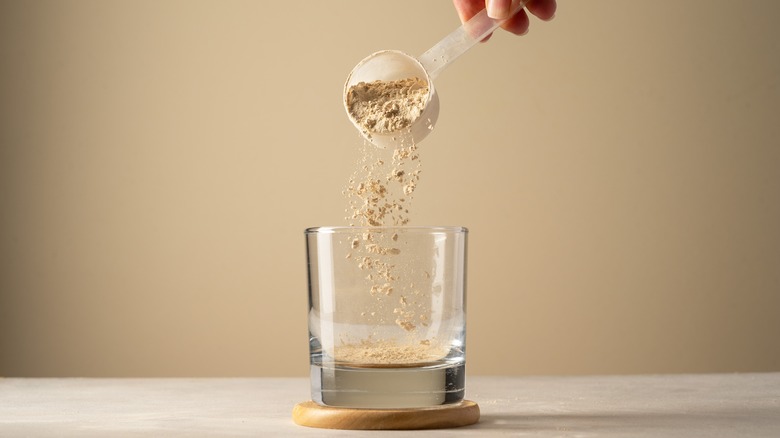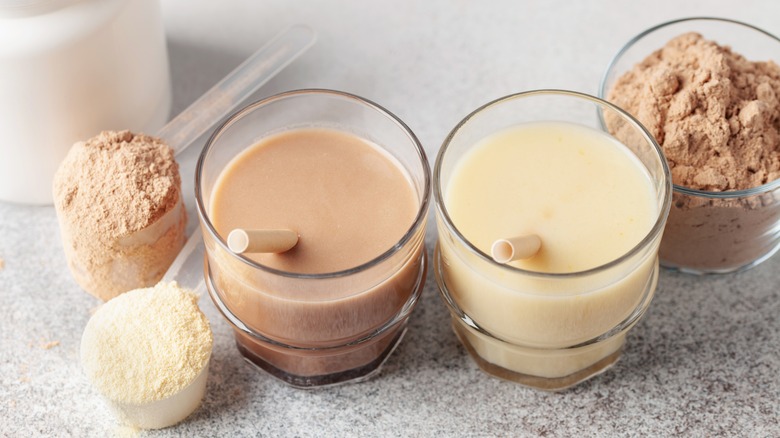Does Protein Powder Actually Expire?
Perhaps your quest to increase your daily protein intake got thwarted, and your well-meaning intentions to sneak scoops of protein powder into your fruit smoothies or bowls of oatmeal have been forgotten. The date printed on the package of protein stashed in your cupboard is near, and you're wondering if the powder is safe to consume. Well, it depends.
Protein powders often have other ingredients added to extend the life of the product, even up to two years. (If you see a yearslong gap between the date of production and the time by which the protein should be consumed, the protein probably has additives added to the formula.) Luckily, dried pantry staples like protein powder are unlikely to make you sick, so if you do discover you've ingested protein power with an expired date, you may be in the clear. Just pick up a new supply the next time you're at the store.
Decoding supplement labels
Protein powders can be derived from both animal and plant sources, so the kind of protein you're spooning into can impact its shelf life, which is the time at which the protein is at its highest quality according to the manufacturers. Though dietary supplements are not required to have expiration dates printed on packaging, it is common to see a "best by" date or the date when the product was manufactured.
Though researchers have studied whey protein and concluded that these products can maintain quality for up to 19 months, other protein types have not been as widely studied. Whey, casein, soy, collagen, pea, rice, egg white, and various combinations can be found in markets. Should whatever kind of protein powder you are inspecting appears to be discolored or clumpy or just plain smells funky, it is better to play it safe and get rid of the suspicious supplement before plopping a level scoop into your glass.

